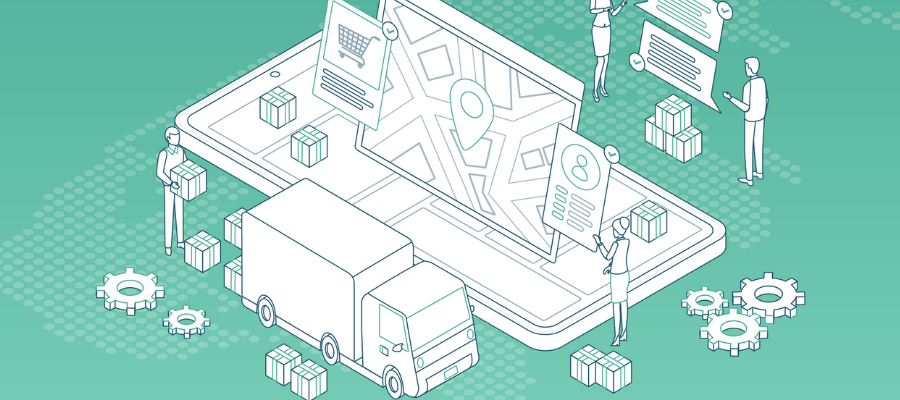🕒 Article read time: 2 minutes
Resilience requires innovation: The supply chain industry's uphill fight
Sponsored content

Richard Tucker, Business Development Director, Quincus
85 trillion dollars – that's the current global GDP. 100 trillion dollars is the investment needed over the next 30 years to meet net-zero pollution pledges from global supply chains, according to a report by HSBC and BCG. Combine this with the current disruptions in global trade, the labour crunch, exploding transport prices, and a lack of profitability due to postponed investments in technology and digitisation. Yes, the prospects for the transport sector are looking bleak indeed. Considering the rough journey ahead, there's still a glimmer of hope: it's not too late for meaningful change. But those solutions require innovation.
There are several burning issues that call for immediate action. First of all, climate protection. The aforementioned report found that 80% of today's carbon emissions are attributed to the supply chain industry. We already have cleaner fuels available for marine shipping, while a switch to green hydrogen would be the real deal.
Regarding land transport, Quincus is actively working with customers to implement electric and clean energy vehicles within central business districts. Machine learning and AI can help discover safer and less energy-intensive supply routes, optimising floor-to-door procedures. The non-profit environmental disclosure platform CDP report found that over a billion metric tonnes of emissions could be avoided if a handful of energy suppliers increased renewable electricity usage by 20%.
RESILIENCE THROUGH INNOVATION AND A FOCUS ON SOLUTIONS
Innovative technology also enables remote-operated forklifts, self-driving tractors, and robots within the supply chain ecosystem. With these in place, employers will be able to reach expert professionals outside of the metropolitan areas and probably even in regions with low employment opportunities. It will help mitigate the shortage of skilled labour that has become a significant issue for the industry. The scarcity has added to waiting times from lacking machine operators in warehouses to cargo handlers at ports. Companies are forced to adapt operations significantly in order to attract more workers. If not done well, this can detrimentally increase the cost of business.
But there are also downsides. A fully-automated supply chain brings cybersecurity issues with it. The current rise in digital workspaces has been met with increased network attacks and intrusions from cybercriminals. With integrated production lines utilising smart sensors and actuators to collect digital data and remote access, often controlled by WiFi or Bluetooth, there are plenty of vulnerable points for hackers.
Proper and holistic supply chain management can, however, mitigate cybersecurity risks. Looking at the company's digital framework as a whole and considering attacks from both inside and outside are necessary steps for a robust response strategy. These must be bolstered by insurance, regular audits, and employee vigilance training.
THE WAY FORWARD
The highly overused idiom "a journey of a thousand miles begins with a single step" has become painfully relevant when looking at the current state of the supply chain industry. Implementing innovative technology and solutions to battle the disastrous emissions and other ailments of the transport sector will take time and some serious investments. However, it is a strategy that will undoubtedly pay dividends in the long run. We need to start now.
*www.quincus.com
Published On: 31/03/2022 16:00:53

Comments Section
If you are a Logistics UK member login to add comments.